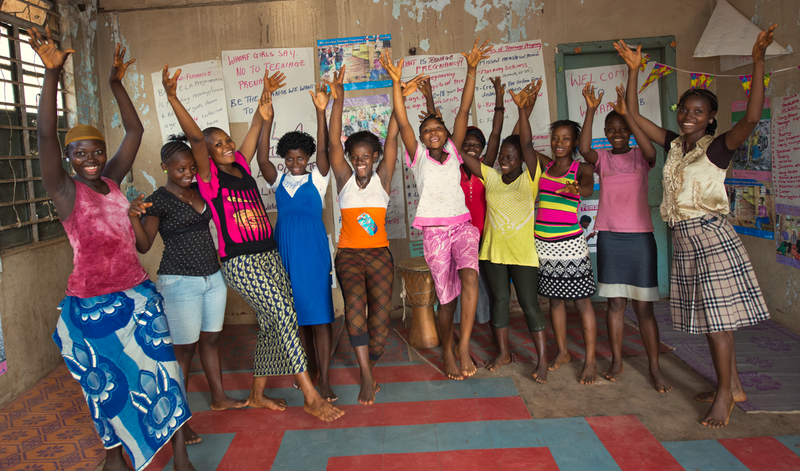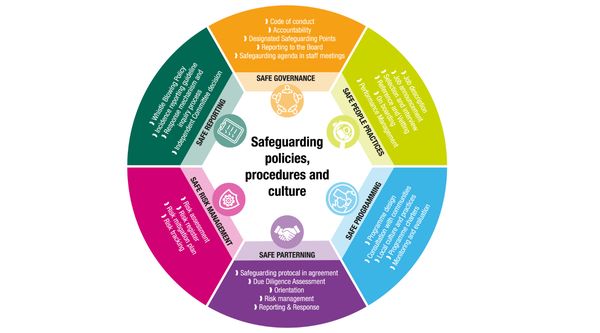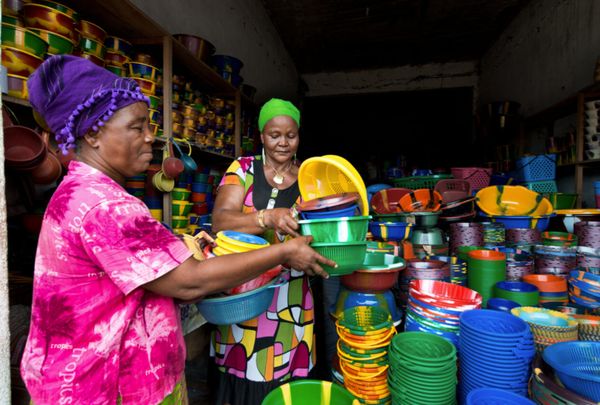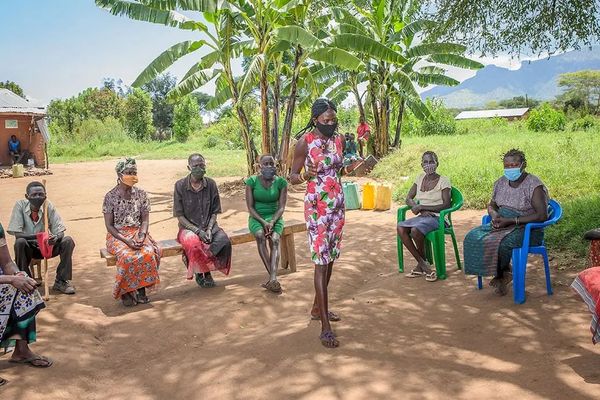For more than 50 years, BRAC has placed the safety and protection of its programme participants and employees at the heart of its mission to end poverty.
Safeguarding is central to how BRAC works—ensuring dignity, accountability, and care across every community and initiative.
Safeguarding is also inseparable from BRAC’s mission to empower people and communities in situations of poverty, illiteracy, disease, and social injustice. Our decades-long effort to prevent sexual harassment, child and adolescent abuse, intimidation, violence, bullying, discrimination, neglect, and exploitation reflects this commitment to dignity and protection for all. BRAC’s leadership champions safeguarding—its Boards vigilant, its Management persistent, and its teams leading by example to nurture safe, inclusive, and respectful environments.
OUR SAFEGUARDING POLICIES

As part of its commitment to building a safeguarding culture and aligned with BRAC’s vision of a world free from discrimination and exploitation, BRAC adheres to six safeguarding standards around Safe Programming; Partnering, People Practices, Reporting, Risk Management and Governance. To achieve these, BRAC International has developed a comprehensive Safeguarding policy and a set of sub-policies concerning the safeguarding of specific groups in specific programmes. These policies are as follows:
BRAC’S SAFEGUARDING FRAMEWORK

PREVENTION
BRAC’s priority is to prevent harassment and abuse from taking place and uphold a safe working environment.
Preventive measures include:
- Safe programme design considering risks of abuse and harassment connected with programme activities and high-risk groups
- Safeguarding in recruitment ensuring thorough background checks
- Safeguarding training and awareness building
- Safeguarding risk management
- Audit and monitoring of safeguarding indicators
- Multiple reporting channels available for programme participants, staff and related personnel to report incidents, displayed in visible locations
- Safeguarding Focal Points
- Safe partnerships and service agreements ensuring commitment to safeguarding
PROTECTION
BRAC's priority is to ensure access to justice is available to those who have been subjected to harm or abuse
Protection measures include:
- Human Resource Compliance Committee (HRCC) in place to receive complaints and initiate investigations into reported incidents
- Case management and investigations are done in a survivor-centred approach, ensuring risk assessment and mitigation plans
- Support to survivors (including Psychosocial, Medical, Legal and Rehabilitation support)
- Disciplinary actions taken against proven violations
- Learning from cases to strengthen systems and processes
RESPONSIBILITIES OF BRAC INTERNATIONAL LEADERSHIP, STAFF, AND ASSOCIATED PERSONNEL
Safeguarding is everyone’s responsibility. There are specific duties that staff and associated personnel must abide by in their day to day lives.
Employee’s responsibility:
- Know Safeguarding and related policies and the Code of Conduct.
- Inform a trusted colleague or supervisor immediately after any safeguarding incident takes place.
- Save important and necessary information, evidence and documents in case of any safeguarding incidence.
- Disseminate the reporting procedure and help-line numbers to colleagues and programme participants.
- Say ‘no’ to any kind of abuses and harassment and report it.
Co-worker’s responsibility:
- Be committed to stand against any safeguarding incidence.
- Assist in finding information, protect confidentiality of individuals, and be neutral as a witness.
- Do not engage in unnecessary discussions regarding any incident of abuse or harassment.
- Be sensitive towards the victim/survivors, and provide him/her with useful counselling.
Supervisor’s responsibility:
- Ensure all Policies are available to all employees.
- Resolve an issue between colleagues before it turns into a big problem.
- Discuss BRAC’s culture, values, codes of conduct and policies in monthly meetings.
- Maintain neutrality and take immediate steps in case of a safeguarding incident.
- Help the investigation team, maintain confidentiality and provide them with accurate information.
- Ensure an environment where everyone can speak openly, without any reservation.
- Treat everyone equally and respectfully.
MONITORING AND EVALUATION

We monitor the extent to which safeguarding measures are in place, evaluating their effectiveness and undertaking safeguarding reviews through audits.
In addition, we undertake safeguarding quizzes to understand the awareness of safeguarding children, young people and adults experiencing vulnerability.
REPORTING AND RESPONSE
All complaints are looked into with equal importance and are investigated thoroughly.
BRAC International has three reporting channels for safeguarding incidents:
- Through 1st Channel (respective programme management) to the first supervisor, second supervisor or HRD team, Safeguarding Focal Point or Head of Safeguarding and Organisational Culture at BI.
- Through 2nd Channel (helpline), you can mail directly to bi.safeguarding@brac.net, voice.international@brac.net or respective country hotline numbers and email addresses.
- Through 3rd Channel (whistleblowing), you can email directly to any of the BI Directors, including the Executive Director of BRAC International.

To email a report:
BRAC International: voice.international@brac.net
BRAC Afghanistan: voice.afghanistan@brac.net
BRAC Liberia: voice.liberia@brac.net
BRAC Myanmar: voice.myanmar@brac.net
BRAC Philippines: voice.philippines@brac.net
BRAC Rwanda: voice.rwanda@brac.net
BRAC Sierra Leone: voice.sierraleone@brac.net
BRAC Tanzania: voice.tanzania@brac.net
BRAC Uganda: voice.uganda@brac.net
BRAC Ghana: voice.ghana@brac.net
BRAC Kenya Company Limited: voice.bkcl@brac.net
